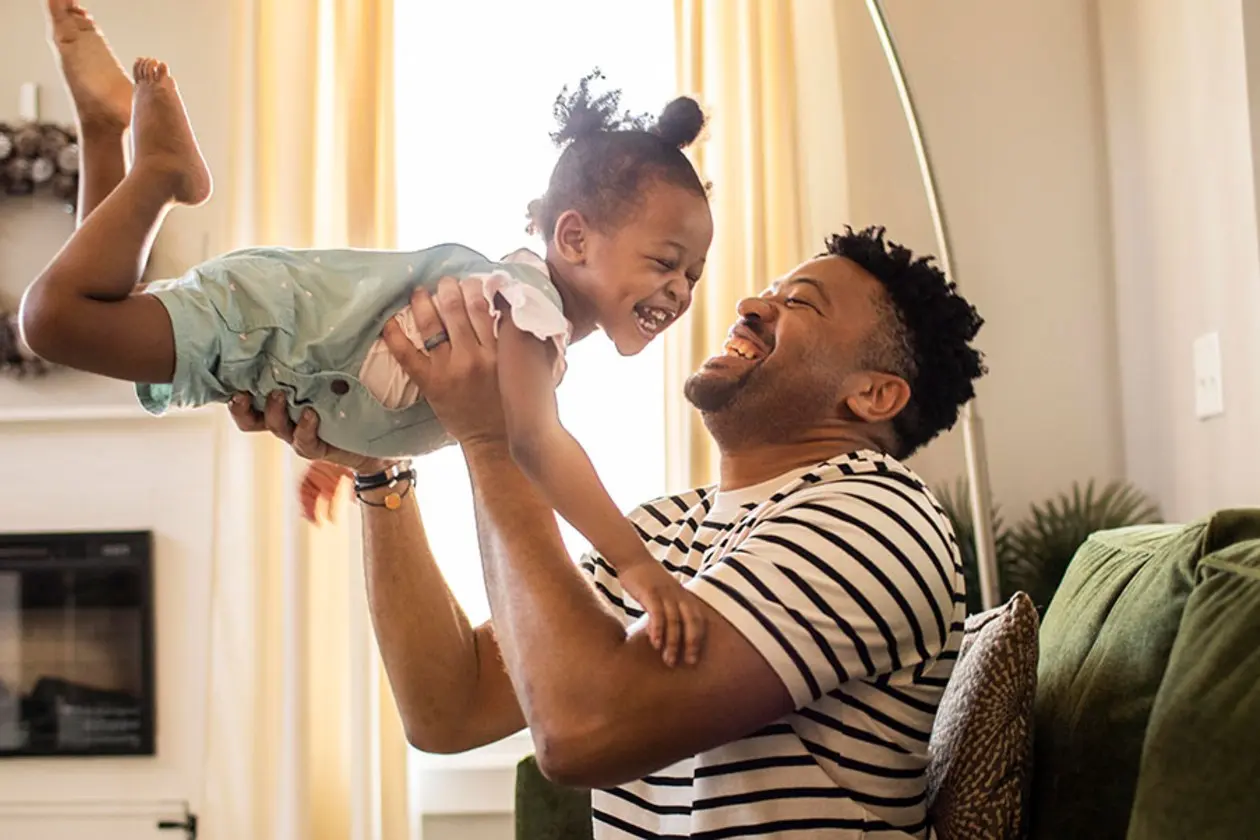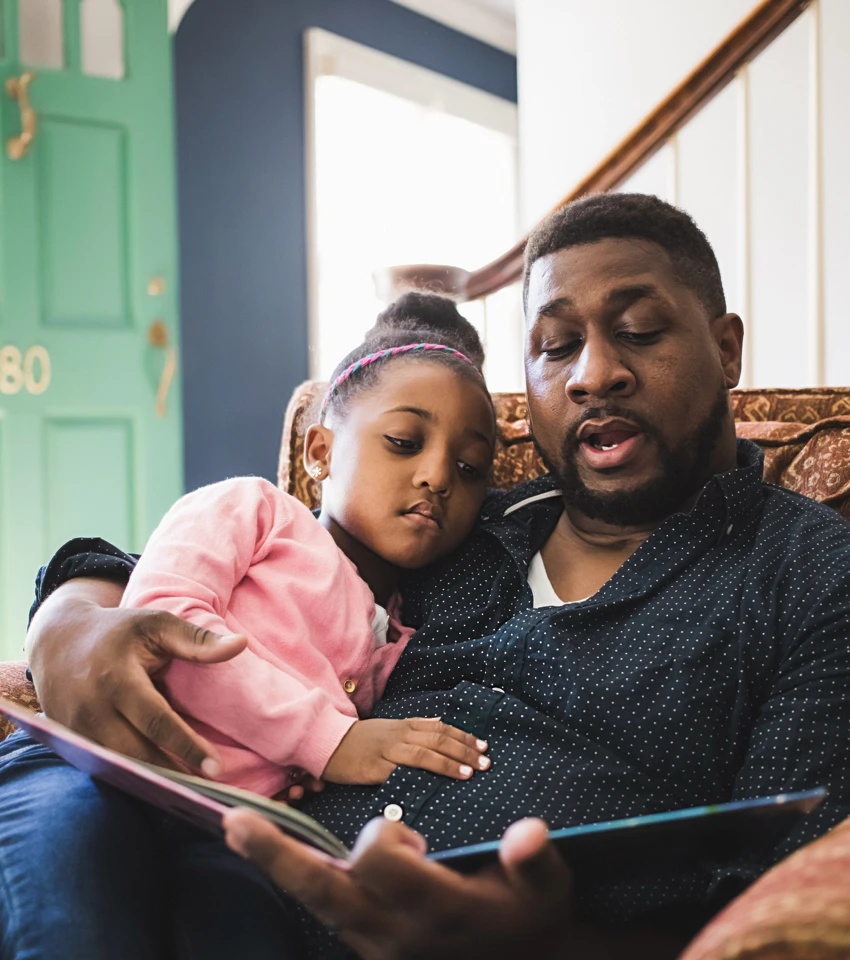Gifting money to a child or grandchild
We explain how to gift money to a child to invest and how this could be taxed
Important information - Unlike the security offered by cash, investments and any income they produce can go down in value as well as up, so your child could get back less than invested. The value of tax savings depends on individual circumstances and tax rules can change over time. Figures and allowances relate to the 2025/2026 tax year unless otherwise specified. If you are unsure if an investment is right for you or your child, please ask for financial advice.
Gifting money to children
We want the best for the children in our lives. We want them to be able to chase their dreams and achieve their ambitions. As adults, how can we help?
If you’re considering giving a child a gift, saving or investing money on their behalf can help build a strong financial future and help give them the best start in life. A gift they will appreciate over the long term.


Why you could consider investing rather than saving
Putting money in a children’s savings account could be an option, but inflation - the change in the purchasing value of money - will eat away at the real value of those savings.
Cash is usually safe for short-term savings, where you need the money in less than 5 years.
But if you have the time to be patient, investing in the stock market could help you beat inflation. It also offers the potential for greater rewards in return for accepting a higher level of risk.
Though remember unlike the security offered by cash, investments and any income they produce can go up and down in value, so your child could get back less than you put in.
How to gift money into a child's investment account
We currently offer three accounts for children that family and friends can invest into - Junior SIPP, Junior Stocks and Shares ISA, and Bare Trust accounts
Whichever account you choose, you can be confident it will be easy to manage with HL and there will be a wide investment choice. See how our accounts for children compare.
Tax rules can change, and benefits depend on individual circumstances.
Junior ISA
Free from UK income and capital gains taxes.
Once a parent or guardian opens a Junior ISA, grandparents can make contributions within the annual limit of £9,000 (for the 2025/2026 tax year). The account converts to an adult ISA at age 18.
Junior ISA top ups can be made online, by post or by telephone as a lump sum or via monthly savings.
Junior SIPP (Child’s pension)
Free from UK income and capital gains taxes.
Once opened by a parent or legal guardian, grandparents can make lump sum contributions by cheque or by telephone using a debit card.
The account benefits from 20% tax relief on contributions up to the annual limit, so a gross contribution of £3,600 (the maximum for most children) only costs £2,880.
Bare Trust Account
This account can be opened by anyone, including grandparents.
Assets are held in trust for a child until they turn 18, although earlier withdrawals are possible if they are used for the benefit of the child. They are normally taxed as if they belong to the child. Can be useful for inheritance tax (IHT) planning.
Tax rules when gifting money to a child
There are a few things about tax you should consider before gifting money to a child.
Inheritance tax and gifting
When money or assets are paid into an account (including Junior ISAs, Junior SIPPs) for a child’s benefit, they are treated as a gift. Some gifts are free or exempt from tax, others may be subject to inheritance tax (IHT). Here are some of the exemptions:
You can normally give away up to £3,000 per tax year inheritance tax free. This is known as the annual exemption. You can carry any unused annual exemption over to the next tax year but if you don't use it in that year, it’s lost.
For example: if you used £2,000 of your annual exempt amount in the last tax year you could then gift £3,000 for the current tax year, and £1,000 carried over, a total of £4,000.
On top of the annual exemption is a small gifts exemption. This allows you to give up to £250 each to any number of recipients each tax year, although not to anyone who received a gift that came under any of the other exemptions.
Please note that you can't give more than £250 and claim the first £250 as a small gift. If you give an amount greater than £250 the exemption won’t apply.
You can also make 'gifts out of income' free from inheritance tax. Regular payments made out of excess income (which don't affect your standard of living) are normally exempt from IHT.
This can be a useful exemption for those wanting to contribute to a child’s investments through regular savings.
It’s important to keep records. If you decide to make regular gifts out of income as part of your normal spending, you should keep a record of your after-tax income. This will demonstrate the gifts you've made are regular and you have enough income to cover them and your usual day-to-day costs, without having to draw on your capital.
Taxation outside of a Junior ISA or Junior SIPP
Both the child’s and person making the gift’s tax positions need to be taken into consideration when investing outside of a Junior ISA or SIPP.
Most children can ‘earn’ up to £18,570 per year without incurring tax (personal allowance of £12,570, starting rate for savings of up to £5,000 and personal savings allowance of £1,000).
The full starting rate for savings will only be available if income other than savings income (e.g. dividend or employment income) is less than £12,570. If this ‘other income’ is above £12,570 then £1 of the starting rate for savings will be lost for every £1 of ‘other income’ above this amount. If the ‘other income’ includes dividends then a tax free dividend allowance of £500 is also available.
They will also have a Capital Gains Tax allowance (£3,000 for the 2025/2026 tax year) as well.
Outside of a Junior ISA or Junior SIPP, children can only benefit from income of up to £100 per year on money given to them by each parent. If they receive more, the parents must pay tax on all interest or dividends at their highest rate of tax.
However, if a grandparent, other relative or family friend has contributed the capital, only interest or income over the child's personal allowance would be taxed. And this tax would fall upon the child.
Our award-winning Junior ISA
Best Buy Junior ISA
- Boring Money Awards 2025
Best for Client Communications
- Boring Money Awards 2025
Best for Customer Service
- Boring Money Awards 2025

Help and support
If you have any questions about investing for children, you can speak to one of our UK-based client support experts.